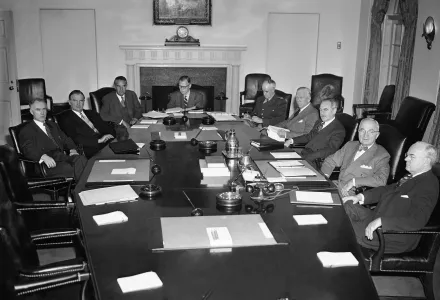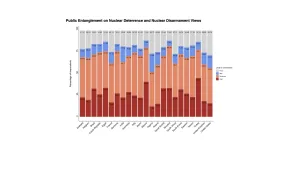
Featured in the Spring 2022 Newsletter »
Imagine if you woke up tomorrow to news of a massive cyberattack that irreparably damaged financial markets and shut down critical infrastructure, a significant conventional defeat due to strategic surprise like happened at Pearl Harbor, or the release of a manufactured pathogen that marks the beginning of a new global pandemic. If any of these national emergencies occurred, you would want to feel confident that the U.S. has in place a solid national security structure and coordinated plan to handle them.
On May 11, the Intelligence and Applied History Projects at the Belfer Center hosted a conference focusing on the need for—and potential makings of—a new National Security Act for the United States, as we mark 75 years since the current act was passed in 1947. The conference focused on the main challenges facing the existing intelligence and national security mechanisms in the United States and discussed possible mitigation strategies to ensure that the U.S. has the people, structure, systems, integration, legal authority, and partnerships needed to protect national interests in the years ahead.
Former Director of National Intelligence Jim Clapper opened with a keynote address. The morning then turned to the past 75 years, with intelligence historians Sara Castro (U.S. Air Force Academy), Michael Warner (U.S. Cyber Command), and James Wirtz (Naval Postgraduate School), in conversation with Michael Miner (Intelligence Project), examining the origins and evolution of the U.S. national security and intelligence community and reform efforts. The afternoon featured a panel looking to the future, with Ellen McCarthy (former Assistant Secretary of State for the Bureau of Intelligence and Research), the Hon. Jim Clapper, and the Hon. Sue Gordon.
A highlight of the conference was announcement of the winners of the Center’s essay competition, A New National Security Act for the 21st Century, all of whom attended in person and spoke about their papers on a panel with Graham Allison. The third-place paper was co-authored by Marie Couture (national security expert) and Laurie LaPorte (national security expert). Second place went to Sophie Faaborg-Andersen (MPP1, Harvard Kennedy School / MITRE Corporation’s National Security Engineering Center). The first-place winner was Russ Travers (former Acting Director of the National Counterterrorism Center/White House Deputy Homeland Security Advisor).
The winning essays, pending the authors’ permission, will be shared by the Intelligence Project soon.
“Imagining a New National Security Act.” Belfer Center Newsletter, Belfer Center for Science and International Affairs, Harvard Kennedy School. (Spring 2022)





